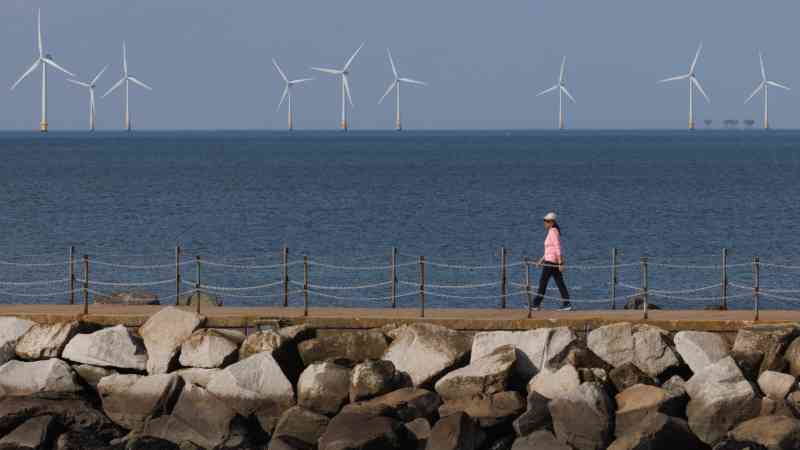Britain ‘needs to triple pace of building offshore wind farms’
Britain must triple the rate at which it is building offshore wind farms or it risks missing a target that is key to decarbonising the electricity grid, a leading think tank has warned.
The government has set a goal of having 50 gigawatts of offshore wind capacity installed by the end of the decade, up from about 15GW on the system at present. However, the country will not meet the target until 2048, based on the present pace of new wind farms being built, an analysis by the Institute for Public Policy Research suggests.
Stepping up the amount of offshore wind capacity on the grid is crucial to meeting the government’s target for decarbonising the electricity system by 2035. Labour has set an even more ambitious goal of achieving next zero by 2030.
Britain has also lagged behind other European countries in developing the manufacturing capacity for every big component of the wind supply chain, despite having one of the most mature renewables industries in the world. If the huge market for wind installation had been exploited to the same extent as by other European nations, including Spain and Germany, an additional £30 billion could have been generated between 2008 and 2022, the report claims.
Simone Gasperin, an associate fellow at the institute, said: ‘‘The UK has missed out from becoming a world leader not just in wind power but also in wind manufacturing. This has cost thousands of jobs, billions for the economy and is putting future net zero targets for wind deployment at risk.”
The UK could reduce its import and energy dependence, while reviving its manufacturing industry, by producing more wind components domestically. To capture the potential economic benefit, at least one additional blade factory, two new nacelle and tower factories and two extra foundation factories would need to be built in less than five years, it is claimed.
An investment of £3.2 billion in British manufacturing facilities could generate tens of thousands of direct and indirect jobs, particularly in small and medium-sized businesses, the think tank argues.




Post Comment